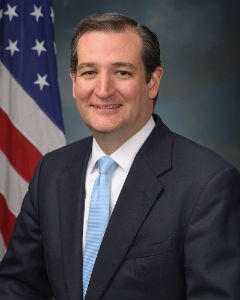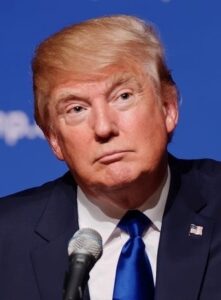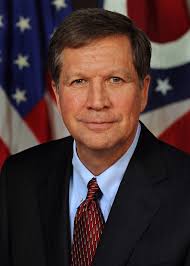A Not-So-Very Super Tuesday
The Death of a Statesman The Last few weeks of the GOP primary have had Republican voters across the country send a resounding message to the GOP leadership: We don’t want a statesman as a president. Marco Rubio dropping out was the final nail in the casket of the Republican Statesman. This a trend that, […]



The Death of a Statesman
The Last few weeks of the GOP primary have had Republican voters across the country send a resounding message to the GOP leadership: We don’t want a statesman as a president. Marco Rubio dropping out was the final nail in the casket of the Republican Statesman. This a trend that, in hindsight, seems very in line with what GOP voters have wanted this election. Since the moment Donald Trump entered the race, the Republican voters have shown in state after state that they want an outsider candidate as their next president, telling the GOP establishment that they prefer someone rash and with private sector experience, over the traditional values that make a politician successful. It are those same values that have embodied statesman culture in the United States political world. The successful statesman politician is calm and reserved, thoughtful and strategic, and stays true to party mantra without purposefully alienating any demographic groups. If those same values remained important today, our next president would have been Jeb Bush, Marco Rubio, or Jim Webb.
However, Donald Trump has done something no president since Ronald Reagan has been able to achieve. He’s managed to create a coalition of Reagan democrats and centrist democrats into his coalition of supporters. This is not to equate the two of them. Reagan was a statesman who used a positive, respectful, and optimistic message, as well as just sheer natural charisma in order to get his supporters, while Trump uses an angry message of fear and his natural booming voice and ability to captivate an audience in order to get his. Reagan’s strong conservative message, as well as his experience in governance allowed him to raise quality of life in America higher more than any other president in the last two centuries. Trump’s economic plans on the other hand are much less conservative than of any Republican who has run since the civil war. Trump supports curbing free trade, as well as a pivot towards protectionism, both being issues he and Senator Bernie Sanders agree on. Support for such policies show that Trump plans on running this country as a business.
I support it when candidates break with their parties on certain issues. It shows thinking, and it shows that they don’t bow to pressure from internal forces. However, supporting a curbing of free trade is simply not conservative, is naïve, and breaks with tried and true Republican party economic traditions since the civil war. This election cycle, however, this message of protectionism has managed to attract a demographic of voters that have been completely out of the political spotlight for most of history: Poorly educated, blue collar, white, industrial workers. By blaming jobs being sent overseas to China and Mexico on those countries, rather than on natural trends, Trump is able to unite these people through mutual hatred of an outside party. In reality, these jobs have been leaving at higher rates than overall jobs lost, meaning, that as those manufacturing jobs leave, new jobs in other fields open. Whether this is a bad or good trend for the future of this country is a larger debate, but for many of those blue collar jobs lost in manufacturing, new jobs are being opened in a variety of new sectors that just had not existed at American manufacturing’s height, such as in technology, bio-tech, and pharmaceuticals. That aside, much of Trumps support comes from socially conservative blue collar workers, who see Trump as the only one who still cares about this dying (and not particularly profitable anymore) American industry, while other candidates have allowed these trends to continue.
Election Update
The past few weeks have resulted in another round of thinning within the GOP field. First, in a widely anticipated move that came months after he was last politically relevant, Dr. Ben Carson suspended his campaign. More surprising, however, has been what he has done in the short time since his drop out. First, he endorsed Donald Trump, saying that he is the only man running who could fix America. Second, he said that while he does not agree with Trump on everything, he could only be “so bad” and that even if he does poorly, he could always just be replaced in “four years.” Third, and this was done while officially endorsing Trump, he said that during their meeting about the endorsement, he was promised some sort of Job within the Trump administration, implying in context, that he endorsed Trump because of a job promise. However, as Carson has not been relevant for quite some time, most of these announcements only stayed in the mainstream media for only a day or two.
In a much more relevant political event, Senator Marco Rubio dropped out of the GOP race. I addressed some of the reasons of why he was not successful earlier in this article, but I’ll go into slightly more detail here. What really ended his campaign was losing his home state of Florida to Donald Trump. Despite some hopefulness in recent polls, Rubio’s young and optimistic appearance and vision were not enough to stop the Trump train as it steamed through Florida, beating Rubio by double digits. Rubio focused on younger and wealthier demographics throughout the state, as well as a lot of support from Cubans and Puerto Ricans living in the State. Trump focused on the Florida Panhandle as well as more rural areas and much like in most of the country, united the poorly educated white demographic to his side.
The Trump Alternatives
Ted Cruz and John Kasich remain the GOP’s last hopes as the anti-Trump candidates, although their campaigns have very different strategies. Cruz hopes to rally up defectors from other conservative campaigns, and through his harsh rhetoric and evangelic past to unite the Christian right, far right, and some members of the mainstream right into a coalition that can actually defeat Trump outright. Kasich, on the other hand, has been going as the respectful adult alternative to both other candidates, staying moderate without being a part of the Washington establishment, and using his credentials as a congressman during the Reagan era and as a successful governor, as well as an aspirational message of care and unity in order to unite the Republican Mainstream, Moderate Right, and some aspects of the Christian Right. His coalition is focused on helping Ted Cruz prevent Donald Trump from receiving the necessary amount of delegates to win the nomination out right, and send the party into a brokered convention. Kasich thinks that he would be able to win such a convention, citing his policies and universal and crossover appeal. Despite what it may seem like, this nomination is not over quite yet. The most surprising may be yet to come.
Michael GOFMAN






